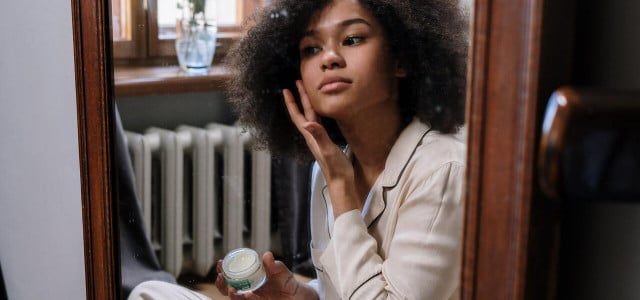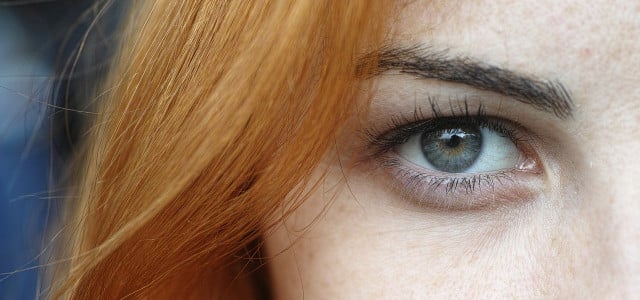Retinol is an increasingly popular skin care treatment. But how does retinol work and what are the side effects? Here’s what you should know before using it.
Retinol is a popular beauty product used by people of all ages and skin types, primarily to fight signs of aging like fine lines and wrinkles. It’s also proven useful in treating acne and pesky blemishes. It’s a common ingredient in many cosmetic products, and lots of people cherish its beneficial effects on skin collagen and texture — so how does retinol work?
Retinol is derived from vitamin A, a compound commonly found in fruits and vegetables. Retinol products can be bought over the counter or prescribed by a doctor. It is known to help increase skin brightness, and reduce the appearance of fine lines. It also clears pores.
Below, we’ll discuss the specifics like how long retinol takes to work, how it works, how to use it and what side effects to watch out for.
What is Retinol?
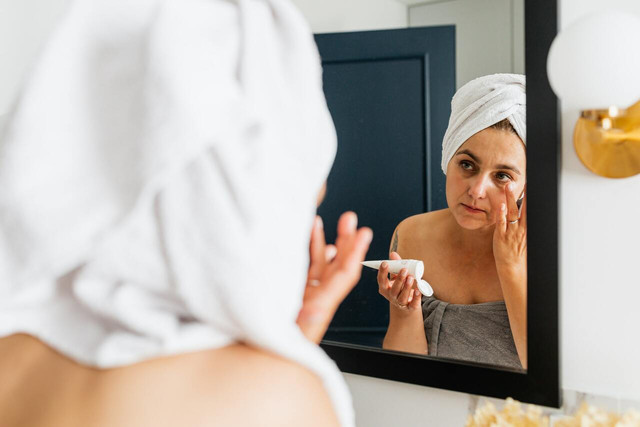
Before we discuss how retinol works, let’s start with what it is. Retinol is another name for vitamin A. It is a fat-soluble vitamin that contributes to many natural functions of the body, such as:
- Eyesight
- Skin
- Development of the nervous system
There are many different compounds of retinoids. Retinoids are the name for the class of compounds derived from vitamin A. When used for skin, it is usually divided into two categories — it can be ingested in vitamin form or used as a topical treatment. You can find it in many forms, including:
- Creams
- Gels
- Lotions
- Ointments
- Oral tablets
- Serums
You can get retinol over-the-counter or as a prescription if you have severe acne. According to the American Academy of Dermatology Association, the prescribed kinds are usually more effective. These include tretinoin, tazarotene, isotretinoin, and trifarotene. For over-the-counter retinol, adapalene (also called differin) is among the most potent retinols approved by the FDA. Most beauty products containing retinol will have much lower strength than prescribed retinol.
Read on for the side effects and how long retinol takes to work.
Side Effects of Retinol
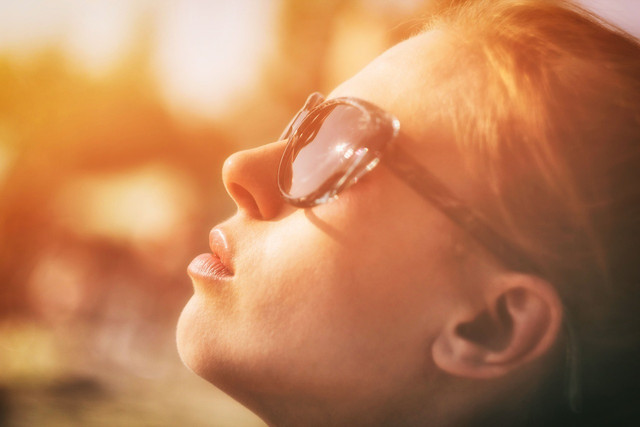


It is always worth checking with your dermatologist or doctor before starting a high dose of retinol, as there are some side effects. We’ll list a few before moving on to the question of ‘how does retinol work.’
Side effects include:
- Itchiness
- Swelling
- Sunburn
- Skin irritation
- Redness
- Dryness
- Peeling
Usually, these effects signal that you’re using retinol incorrectly.
In the worst cases, ingesting a high level of oral retinol can cause vitamin A poisoning. This can lead to osteoporosis, nerve damage and hyperthyroidism. However, vitamin A poisoning is rare. We’ll cover how you can tackle the more common side effects below.
How Does Retinol Work?



According to research, retinol has little effect on the actual skin tissue. Instead, its function goes much deeper. Retinoid molecules can bind themselves to proteins in the body. They attach to a specific type of protein called nuclear receptors. Nuclear receptors are responsible for sensing proteins and hormone molecules in the body.
One of the essential nuclear receptors retinol binds to is keratin (found in keratinocyte cells). Keratins help to maintain the cells in the outermost layer of the skin. When the retinoids bind with these proteins, they promote cell growth, strengthen the functions of the skin, and reduce water loss. In doing so, retinoids achieve a few different things:
- They protect against the loss of collagen — the protein responsible for preventing wrinkling and dryness.
- They inhibit cartilage damage — an element needed for supporting the surrounding skin cell structure.
- They stimulate blood cell formation — allowing vital nutrients and oxygen to reach skin cells.
These factors all give retinol its power as an anti-wrinkle and anti-acne treatment.
How Long Does It Take for Retinol to Work? How Do You Use It?
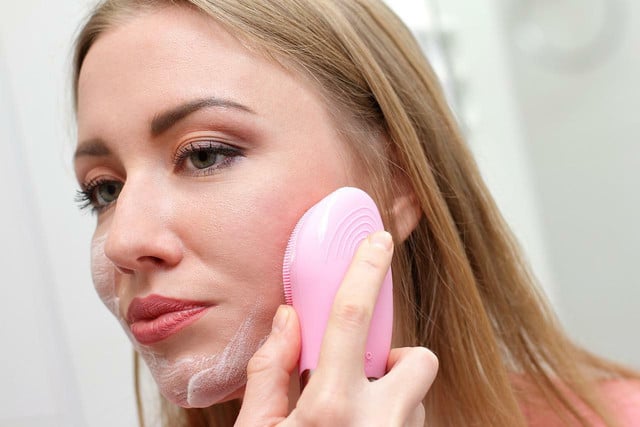


While retinol has many benefits, it can make the skin very sensitive to sunlight. Since new cells are being generated, the skin is unprotected and more likely to get sunburnt. For this reason, sunscreen is essential when using retinol. It’s advised only to use retinol at night when you first start out and to build up use gradually to see how your skin reacts.
Many people notice that their skin typically worsens when they start to use retinol. This is because your old skin cells are being turnover so new ones can take their place. The initial purge can cause breakouts, dryness, and sometimes irritation. You can help to reduce these factors by starting with low-strength retinol and wearing sunscreen daily.
But as to how long it takes retinol to work — generally, it takes about 3 to 6 months to start seeing results. But if you have a severe response to retinol, it is best to stop and consult a dermatologist.
Similarly, if you are using retinol to treat a dermatological condition, it is always best to follow the advice of your doctor and regularly review your progress with them. For conditions such as hyperpigmentation, psoriasis, and severe acne, your doctor may recommend a specific course of treatment that you should follow.
How Does Retinol Work? Top Tips and Takeaways
Since retinol is a vitamin found naturally in many of the foods we eat, you can help to boost its effects by eating foods high in vitamin A, such as:
- Broccoli
- Sweet potato
- Carrots
- Leafy greens
Many foods are also fortified with vitamin A, so look out for those. With persistence and caution, retinol can do wonders for your skin. Just remember to do your research when trying a new product and consult your doctor if you have more questions about how retinol works or how long it will take retinol to work on your skin.
Read more:
- Dry Skin Remedies: 9 Ways to Soothe Dry Skin Naturally
- How to Get Clear Skin Naturally with Our Top 12 Tips
- Glycerin for Skin: 3 Benefits, the Risks & DIY Instructions
Do you like this post?






